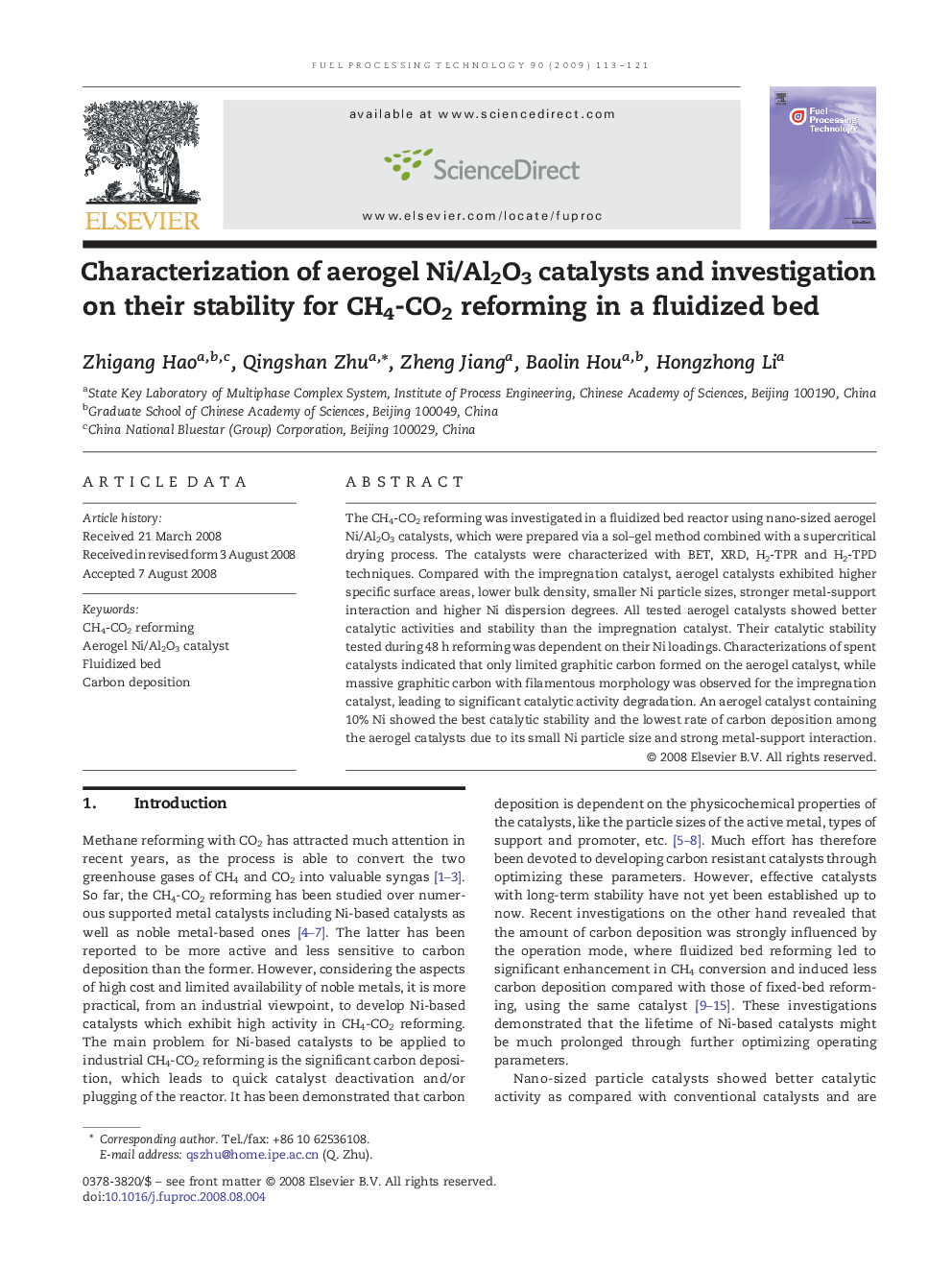| Article ID | Journal | Published Year | Pages | File Type |
|---|---|---|---|---|
| 211401 | Fuel Processing Technology | 2009 | 9 Pages |
The CH4-CO2 reforming was investigated in a fluidized bed reactor using nano-sized aerogel Ni/Al2O3 catalysts, which were prepared via a sol–gel method combined with a supercritical drying process. The catalysts were characterized with BET, XRD, H2-TPR and H2-TPD techniques. Compared with the impregnation catalyst, aerogel catalysts exhibited higher specific surface areas, lower bulk density, smaller Ni particle sizes, stronger metal-support interaction and higher Ni dispersion degrees. All tested aerogel catalysts showed better catalytic activities and stability than the impregnation catalyst. Their catalytic stability tested during 48 h reforming was dependent on their Ni loadings. Characterizations of spent catalysts indicated that only limited graphitic carbon formed on the aerogel catalyst, while massive graphitic carbon with filamentous morphology was observed for the impregnation catalyst, leading to significant catalytic activity degradation. An aerogel catalyst containing 10% Ni showed the best catalytic stability and the lowest rate of carbon deposition among the aerogel catalysts due to its small Ni particle size and strong metal-support interaction.
